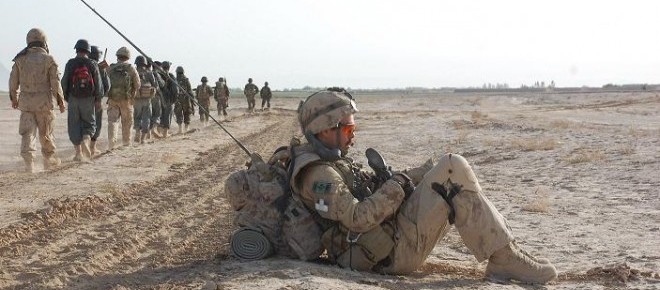Today’s headlines: Canadian troops will soon leave Afghanistan
Phased withdrawal begins next month and wraps up in 2014
Murray Brewster/CP
Share

This morning, the Ottawa Citizen decided the most important news for the nation’s capital was Canada’s pending withdrawal—entirely, this time—from troubled Afghanistan. By next March, everyone will be home. Among the big Canadian newspapers, the Citizen was alone in fronting the news. The Globe and Mail and Toronto Star stuffed the news on their eighth pages, while the National Post relegated the phased withdrawal to a sixth-page news brief. Afghanistan, clearly, is no longer the main event.
What’s remarkable is how little the conversation about the war, and Canada’s contribution, has changed over the years. The Citizen‘s headline—”Canadian defends Afghan campaign”—could have appeared at any point during our country’s contentious 12-year stint in that theatre. The debate will likely never subside, not even if Afghanistan prospers decades from now and interventionists claim victory (see: the South Korean experience). But the army is, nevertheless, stubbornly sticking to its lines.
Even as Karl Eikenberry, a former U.S. ambassador to Afghanistan and top soldier there in some of the worst years of fighting (were there any good years?), criticizes the western counterinsurgency strategy, Canadians remain defiant. Maj.-Gen. Dean Milner, the Canadian mission’s most senior officer, says he’s “seen tremendous improvement over the last couple of years,” and the counterinsurgency “moved this country in the right direction.” He called the mission “painful and productive.” Now, who knows what Milner will say when he retires and has more freedom to deviate from his approved lines. But for now, Canada’s debate in Afghanistan remains binary—either it was a waste of time and lives, or a “painful and productive” exercise. We’ll have to wait a little longer for our own Eikenberry.
What’s above the fold this morning?
The Globe and Mail leads with U.S. President Barack Obama challenging the world to respond to the Syrian conflict. The National Post fronts Obama’s suggestion that the world’s credibility, not his own, is on the line in Syria. The Toronto Star goes above the fold with Porter Airlines’ expanded proposal to extend the runway at downtown Toronto’s island airport by 400 metres. The Ottawa Citizen leads with a top Canadian soldier’s defence of years of counterinsurgency operations in Afghanistan. iPolitics fronts the federal government’s approval of over two-thirds of temporary foreign worker requests since Conservatives took power in 2006. CBC.ca leads with Canadians who are part of the Syrian conflict. CTV News leads with a U.S. Senate committee’s approval of military action in Syria. National Newswatch showcases a Global News profile of Conservative Senator Marjory LeBreton.
Stories that will be (mostly) missed
| 1. Auto industry. Canadian and American consumers are, thanks to a stronger economy and pent-up demand, buying cars at rates not seen since before the economic downturn of 2008. | 2. Afghanistan. Canadian troops will start a phased withdrawal from a training mission next month that’s seen about 950 troops train Afghan forces in Kabul, as well as in the country’s north. |
| 3. Football. Ian Campeau, an Ojibwa man in Ottawa, has filed a human rights complaint related to the name of a local football team—the Nepean Redskins—that he says is racially insensitive. | 4. Mennonites. A community in Manitoba that had 18 children removed by provincial officials after widespread abuse allegations will have their kids returned to them in October. |
| 5. Rape. A Montana judge says a 30-day sentence handed to a convicted rapist may have been illegal, and the former teacher who committed the crime may have to serve at least two years. | 6. Venezuela. The government’s claims that saboteurs caused a blackout that left 70 per cent of the country without power aren’t finding much sympathy with skeptical Venezuelans. |